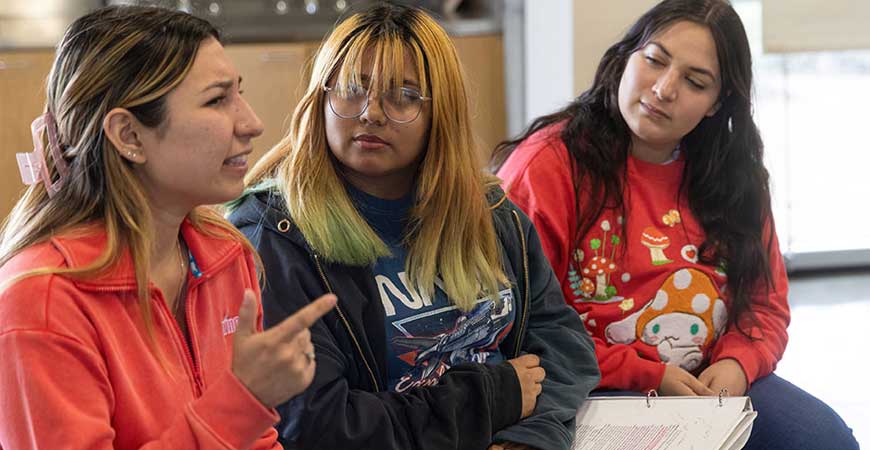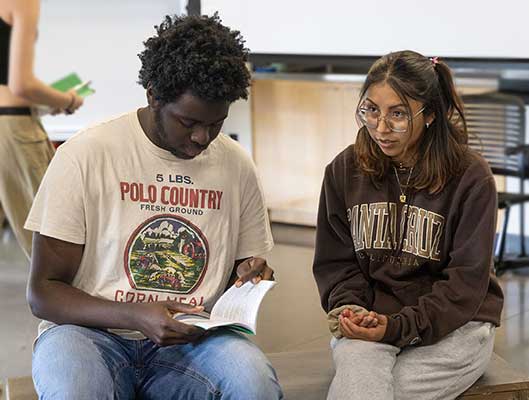
It is impossible to avoid — the real-life event that frames the play “26 Pebbles” is disturbing. Heartbreaking.
Which makes all the more remarkable the play’s uplifting message of human resilience and the ability to come together after an unspeakable tragedy — the mass shooting at Sandy Hook Elementary School in Newtown, Conn.
UC Merced’s Global Arts Studies Program will stage the one-act play, based on more than 60 interviews of Newtown community members by playwright Eric Ulloa. Performances are scheduled for 7:30 p.m. Friday, May 3 and 2 p.m. Sunday, May 5, at the Merced Multicultural Arts Center, 645 W. Main St. in downtown Merced.
Tickets are $10 and can be purchased via UC Merced Arts or at the arts center.
The December 2012 shooting killed 20 children and six members of the school staff. The gunman, who fatally shot his mother earlier that day, then took his own life.
In “26 Pebbles,” tragedy is the starting point. The play begins after the shootings, unspooling as a town with fewer than 13,000 residents struggles with confusion, loss and disbelief, then reels as the national media descends on them.
“The play is about how the community heals and moves forward,” said director Jenni Samuelson, a UC Merced lecturer. The cast are students in Samuelson’s Advanced Performative Storytelling class. Their interweaving monologues, enhanced with props and projections, drive the story forward.
“The characters speak their truths,” Samuelson said. “It's not that everyone agrees with each other. However, it is their truth, and we hope to honor that.”

Last summer, Samuelson looked at numerous scripts, seeking a one-act play that would accommodate a tight rehearsal schedule yet challenge her students. “Every script I read, after 10 pages I would put it down. ‘No, no, no.’ Then I picked up ’26 Pebbles’ and I couldn’t stop reading it. It was so beautifully crafted and honest. And it really brings up a lot for the students to talk about.”
Indeed, after the first all-class reading of the script, before the play was cast, the dominant reaction was apprehension.
“At first, I thought performing this play was an impossible task. With a subject we have become so desensitized to, bringing these characters to life almost seemed cynical,” said Junior Cruz Mercado, a fourth-year global arts studies major. “But after our second rehearsal, I saw the vision we could hope to reach as a team.”
Lois Lopez, a fourth-year psychology major, said the first reading left her doubting they could pull it off. She followed up with personal research on Newtown (remember that these students were 10 or younger when it happened).
“After that, it was a lot easier to access their emotions,” Lopez said. “Reading the play versus acting it are two completely different experiences.”
The play’s title refers to one character’s description of a pebble tossed into water — the concentric circles it sends out, spreading and bouncing and overlapping. Like senseless violence. Or resilience and hope.
“Sandy Hook didn’t go away just because the news stopped covering it. It lives on in our hearts and minds,” said actor Kenzie Nguen, a second-year cognitive science and psychology major. “I think bringing it to public consciousness and hearing how a community copes with such a tragedy is an important message.”